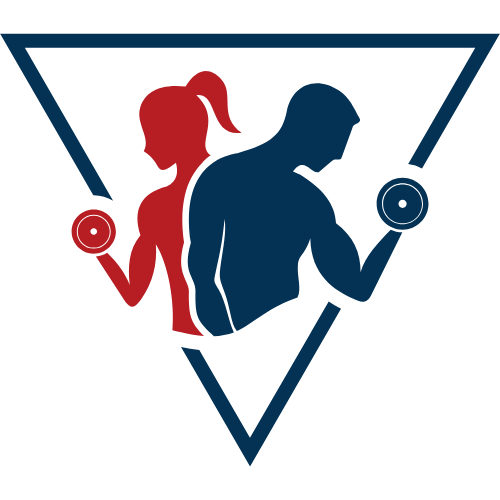Intro of Best fitness certifications for personal trainers
Becoming a certified personal trainer is one of the most important steps you can take in building a successful career in the fitness industry. With the increasing number of people prioritizing health and fitness goals, there’s never been a better time to become a personal trainer. But how do you ensure you stand out in a competitive market?
The answer lies in getting certified through a recognized organization. In this article, we’ll explore the best fitness certifications for personal trainers that will not only increase your credibility but also help you build the knowledge and skills needed to guide your clients toward success.
Whether you’re looking to become a personal trainer or expand your qualifications, choosing the right certification is crucial for your career advancement. Let’s dive into why certification matters and which programs you should consider.
What Does It Mean to Be a Certified Personal Trainer?
What Does a Certified Personal Trainer Do?
A certified personal trainer is a fitness professional who has completed a specialized certification program. This ensures they have the necessary skills and knowledge to help clients with their fitness goals. Certified trainers create personalized fitness plans, guide clients through exercises, monitor their progress, and help them stay motivated.
You will work with a wide range of clients, from beginners to athletes, to help them achieve weight loss, strength, or overall fitness goals. Your role is to educate and motivate, ensuring clients perform exercises safely and effectively.
Why Certification Matters
Certification isn’t just a piece of paper—it’s a stamp of approval that proves your ability to provide expert guidance. Here’s why certification matters:
- Credibility: Being certified shows that you’ve met the standards required in the fitness industry.
- Client Trust: Clients are more likely to hire a trainer who holds a recognized certification.
- Knowledge: Certification ensures you have the technical knowledge about anatomy, nutrition, exercise science, and client safety.
- Career Opportunities: Many gyms and fitness centers require trainers to hold certifications from recognized organizations. Certification opens doors to various career paths, from working in a gym to online personal training.
Key Benefits of Becoming a Certified Personal Trainer
Boosts Your Credibility
When you hold a certified personal trainer credential, it boosts your credibility in the eyes of both potential employers and clients. A certification tells clients that you’re qualified to help them achieve their fitness goals and maintain their health.
Without certification, you may struggle to compete in an industry where professionalism and expertise are essential.
Greater Job Opportunities
Holding a NCCA-accredited certification increases your chances of landing a job in the fitness industry. Many gyms and health clubs require certification before they hire personal trainers. This opens up opportunities for:
- Working at a gym or fitness center.
- Starting your own personal training business.
- Offering online personal training services.
The certification can also help you find clients who prefer working with certified trainers, increasing your income potential.
Increases Earning Potential
Certified personal trainers can charge more for their services. Many trainers with multiple certifications or those with specialty certifications (like strength and conditioning or youth fitness) tend to earn higher salaries compared to those with just a general certification.
Knowledge and Skill Development
A certification program provides more than just a credential—it teaches you the knowledge and skills necessary to be effective. You’ll learn how to create customized training programs, assess clients’ fitness levels, and make modifications to ensure their safety and progress. This level of education is critical to becoming a successful personal trainer.
How to Choose the Right Fitness Certification for You
Consider Your Career Goals
Before you choose a certification, think about your career goals. Are you aiming to work with general clients in a gym, or are you looking to specialize in working with athletes, seniors, or weight-loss clients? Some certifications, like the National Strength and Conditioning Association (NSCA), are more focused on athletes, while others, like ACE and ISSA, are broader.
Look for NCCA Accredited Certifications
The National Commission for Certifying Agencies (NCCA) is the gold standard for certification organizations. Choosing an NCCA-accredited certification ensures the program has met specific industry standards.
You can check if the certification you’re interested in is NCCA-accredited by visiting the certifying organization’s website. NCCA accredited certifications ensure that the program covers the essential knowledge areas and aligns with industry standards.
Training Program Length and Cost
- Time Commitment: Some certifications, like NASM and ACE, require months of study, while others offer more flexible online formats, such as ISSA and NFPT.
- Cost: Certification programs can range from a few hundred dollars to over a thousand. Always factor in the exam fees and potential recertification costs when budgeting.
Check Renewal and Continuing Education Requirements
Many personal trainer certifications require continuing education (CEUs) to maintain certification. Ensure you’re prepared for the ongoing commitment involved in keeping your certification up-to-date.
Best Fitness Certifications for Personal Trainers
Now that you understand why certification is important, let’s dive into the best personal training certifications available today.
National Academy of Sports Medicine (NASM) Certified Personal Trainer (CPT)
- Overview: NASM is one of the most well-regarded certification programs in the industry. Known for its Optimum Performance Training (OPT) model, NASM offers a comprehensive training approach for clients of all fitness levels.
- Why It’s Great: NASM provides evidence-based training, covering everything from exercise techniques to nutrition and client interaction.
- Who It’s Best For: Those who want a scientifically grounded program and trainers aiming to work with a wide variety of clients.
American Council on Exercise (ACE) Certified Personal Trainer
- Overview: ACE offers a widely recognized and affordable certification program. The ACE Personal Trainer Certification focuses on behavior change and client-centered training.
- Why It’s Great: It’s an excellent program for trainers who want to focus on motivating clients and helping them achieve health goals in the long term.
- Who It’s Best For: Beginners and those looking to enter the fitness industry with a well-rounded foundation.
International Sports Sciences Association (ISSA) Certified Fitness Trainer
- Overview: ISSA offers flexible online training, which makes it ideal for those who need a certification program that works around their schedule.
- Why It’s Great: The program includes a wide range of specialties, from strength training to online personal training, making it versatile.
- Who It’s Best For: People interested in a flexible online program or those who want to specialize in a niche area.
National Strength and Conditioning Association (NSCA) Certified Personal Trainer
- Overview: The NSCA Certified Personal Trainer (CPT) certification focuses heavily on strength and conditioning.
- Why It’s Great: It’s particularly beneficial for trainers working with athletes or anyone focusing on high-intensity training or sports performance.
- Who It’s Best For: Trainers interested in strength training and working with competitive athletes.
American College of Sports Medicine (ACSM) Certified Personal Trainer
- Overview: ACSM provides a certification that is globally recognized for its emphasis on exercise science and health.
- Why It’s Great: The ACSM CPT certification is well-regarded for its comprehensive approach to fitness and health, including nutritional knowledge and client care.
- Who It’s Best For: Those who want to dive deep into the science behind fitness and health.
Comparing the Top Personal Trainer Certifications
NASM vs. ACE
- NASM: Focuses on scientific principles, evidence-based training, and advanced techniques.
- ACE: Strong focus on client motivation and behavioral change, excellent for working with the general public.
ISSA vs. NSCA
- ISSA: Flexible, great for trainers who want to specialize or work remotely.
- NSCA: Best for trainers focusing on strength training or working with athletes.
Specialty Certifications to Boost Your Personal Trainer Career
Strength and Conditioning Certifications
Specialize in strength training or conditioning. Examples include NSCA’s Certified Strength and Conditioning Specialist (CSCS) and other specialty certifications.
Health and Wellness Coach Certifications
ACE Health Coach certification offers an additional layer of expertise in lifestyle change and nutrition.
Online Personal Training Certifications
As virtual fitness grows, programs like ISSA’s Online Trainer Academy teach trainers how to transition into the online personal training business.
How to Get Certified and Prepare for the Exam
Getting certified as a personal trainer is a big step toward building your career. Once you’ve selected the right certification program for you, the next step is to prepare for and register for the exam. Let’s break down how to approach this process, from studying the material to taking the test.
Preparing for the Certification Exam
The certification exam is a crucial part of becoming a certified personal trainer. Each certification body, whether it’s NASM, ACE, or ISSA, offers specific study materials and resources to help you succeed. Proper preparation is key to passing the exam and confidently starting your career.
1. Get Your Study Materials
Most certification programs provide a range of study materials, including:
Study guides: These are often comprehensive and cover every section of the exam. They highlight key concepts, terminology, and processes you’ll need to know.
Textbooks: Many programs require or recommend specific textbooks that dive deep into the science of exercise physiology, anatomy, and program design.
Online resources: Many programs have online courses or modules that you can follow at your own pace. These might include video tutorials, interactive quizzes, and additional readings.
Practice exams: Most certifying organizations provide practice tests to simulate the actual exam experience. These exams are crucial to understanding the format of the test and identifying areas where you need more review.
2. Create a Study Plan
Once you have your study materials, it’s time to create a solid plan. You don’t want to cram everything in at once—this can be overwhelming and ineffective. Instead, create a study schedule that allows you to gradually absorb the material over several weeks or months, depending on your time frame.
- Break it down: Divide the content into manageable chunks. Focus on one chapter or section at a time.
- Consistency is key: Set aside regular study time each day or week, even if it’s only 30 minutes to an hour at a time. Consistent study habits will help reinforce the material.
- Mix in different formats: Alternate between reading the textbook, watching online videos, and taking practice quizzes. This will help you engage with the material in different ways and solidify your understanding.
3. Focus on the Key Areas
While studying, prioritize the following key areas that tend to be emphasized in most personal trainer exams:
Anatomy and Physiology: Understand the major muscle groups, bones, and joints. Knowing how the body moves and functions is essential for creating safe and effective fitness programs.
Exercise Science: Learn about how exercises affect the body. This includes concepts like progressive overload, muscle adaptation, and energy systems.
Client Assessments: Learn how to evaluate a client’s fitness level, including strength, flexibility, and cardiovascular fitness. You should also understand how to create individualized fitness plans based on their goals.
Nutrition: Having a basic understanding of nutrition is important. This includes macronutrients (proteins, carbs, fats) and micronutrients (vitamins, minerals), as well as how they influence performance and recovery.
Program Design: Study how to create effective workout programs based on different goals, such as weight loss, strength training, or improving endurance.
4. Take Practice Tests
Practice exams are one of the best ways to gauge your readiness. They help you get familiar with the exam format and the types of questions you’ll encounter. After taking a practice test, review your answers and identify areas where you made mistakes or felt unsure. Then, go back to those areas in your study materials to reinforce your knowledge.
Additionally, practice exams can help you manage your time during the actual exam, so you’re not rushing through questions.
5. Review and Reinforce
As your exam date approaches, spend time reviewing everything you’ve learned. Go over key concepts, terminology, and any areas where you felt less confident. You can even test yourself by teaching others what you’ve learned—explaining complex concepts to someone else is a great way to solidify your own understanding.
You can also read Air assault fitness training tips
After Certification: Starting Your Personal Training Career
Finding Clients and Gaining Experience
Building a client base is key. Use networking, online marketing, and word-of-mouth to attract clients. Start with friends, family, and social media.
How to Market Yourself as a Personal Trainer
Create an online presence through social media, websites, and content marketing. A strong social media presence can help establish your credibility and attract more clients.
My Opinion| Get Started with Your Personal Trainer Certification Today
Becoming a certified personal trainer is the first step toward a rewarding career in fitness. The right certification can open doors to job opportunities, increase your earning potential, and help you develop the knowledge and skills necessary to excel in the industry.
Choose your certification wisely, and remember: it’s not just about passing the exam—it’s about ensuring that you have the expertise to help clients achieve their fitness goals effectively and safely. Get started today, and take the next step toward becoming the best personal trainer you can be.
















Leave a Reply
View Comments